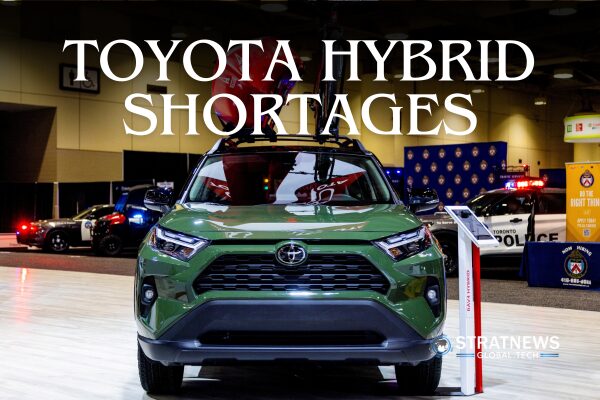Soaring Demand for Toyota Hybrids Causes Global Shortages and Long Wait Times
A surge in global demand for gasoline-electric hybrid vehicles manufactured by Toyota has led to severe part shortages and extended delivery times, according to industry insiders. Buyers in key markets such as the US, Japan, China, and Europe are facing delays ranging from several weeks to several months.
Rising Hybrid Demand Strains Toyota’s Supply Chain
Toyota, the global leader in hybrid vehicles, is facing production challenges despite its preparation. Stocks of popular models like the Yaris Cross and RAV4 plug-in hybrid are running low in Europe, with average wait times stretching to 60 or 70 days—double the wait in 2020.
In Japan, customers are waiting two to five months, while US dealerships report models such as the Prius selling out quickly. In India, wait times vary between two and nine months depending on the model.
This surge underscores Toyota’s long-standing commitment to hybrids, even as some rivals shift focus to fully electric vehicles. The company views this demand spike as validation of its strategy, especially as global hybrid sales have nearly tripled in the last five years, rising from 5.7 million to 16.1 million units.
Supply Issues from Key Component Shortages
Toyota’s hybrid production is being slowed by supply issues in Japan, where many critical components are made. These include hybrid powertrain parts like magnets, inverters, rotors, and stators.
Aisin Corp, a major Toyota group supplier, is reportedly affected by a magnet shortage impacting motor deliveries. Similarly, Denso, Toyota’s top component maker, is facing bottlenecks among its lower-tier suppliers, delaying the delivery of inverters.
To ease the pressure, Toyota is exploring alternative suppliers and considering local inverter production in India.
Toyota’s Response and Investment in Capacity
Toyota confirmed it is working to increase production and improve delivery times, noting significant progress over the past year. In India, its local unit added capacity for 32,000 vehicles annually and plans to boost this by an additional 100,000.
In the US, Toyota has invested $14 billion in a new battery plant in North Carolina, set to begin shipments for electrified vehicles this April. In 2024, nearly half of Toyota’s US-built vehicles were hybrids.
Despite falling sales in China, Toyota’s hybrid segment grew by 27% this year. However, competition remains fierce from local manufacturers like BYD.
Other Automakers Also Face Delays
Toyota is not alone. Hyundai and its affiliate Kia are also struggling with hybrid shortages. In South Korea, Hyundai’s Palisade hybrid has a one-year wait, while Kia’s Carnival and Sorento hybrids have delays of up to 10 months.
Hyundai plans to double its hybrid lineup to 14 models by 2030, reflecting the segment’s strong performance amid slower EV adoption. Meanwhile, Honda reports rising demand for hybrids, particularly in North America and Japan.
Hybrid Buyers Still See Value Despite Waits
Many buyers are willing to wait for Toyota’s fuel-efficient hybrids. Rakesh Kumar, a businessman in India, waited nearly five months for his Toyota Hyryder SUV. “We have one hybrid car in the family already,” he said, “and I know its mileage is way better than any other car.”
with inputs from Reuters


